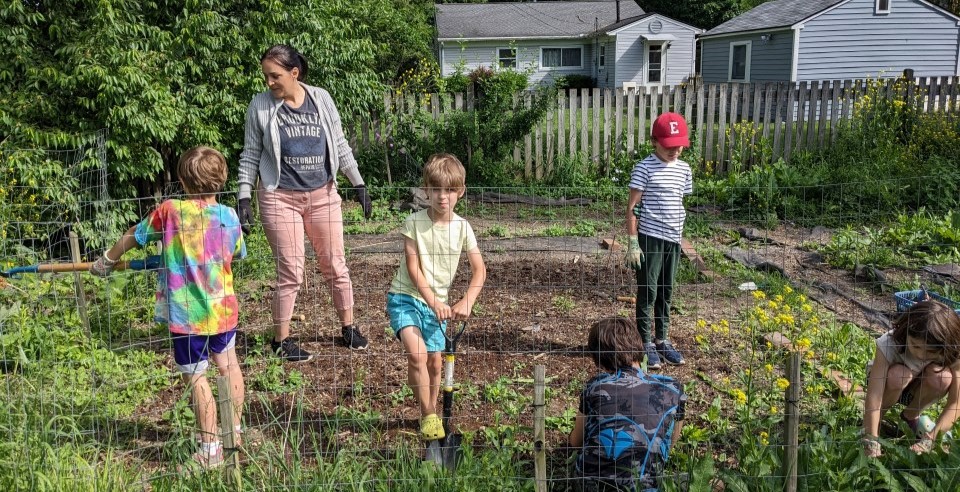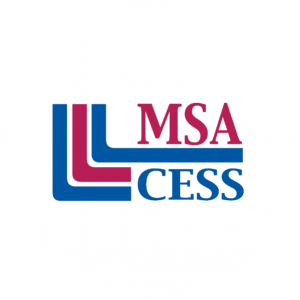What is it like to attend Clonlara’s Ann Arbor campus? The best way to find out is to hear from campus families themselves! We interviewed Bonnie, parent to Joan, age 7, to learn more about her family’s experience at Clonlara.
Clonlara: Why did you choose Clonlara?
Bonnie: We always had an ideal for what our kids’ education could be, and I don’t think we realized how different that actually was from mainstream education right now. We knew that if we could design the perfect school for our family, they would have optional full week, they would have a slightly shorter day, they would have smaller class sizes, and they would really center the students’ needs, interests, and personalities. When we went to a charter school, we saw how far away their methods were from what we wanted. When we saw Clonlara, it was just like magic. It couldn’t have been more aligned to what we wanted.
Clonlara: What are the benefits for your child or family?
Bonnie: I think that flexibility is one of the biggest benefits. I don’t mean the flexibility in scheduling; it’s more like flexibility in responding to Joan’s needs and interests and customizing the approach that’s going to work best for her. She’s a really smart kid, and that’s a double-edged sword. She understands things quickly, and sometimes if she’s not interested or if it doesn’t seem challenging enough she just won’t engage in it. So it’s nice that we have teachers who can lean into it and adapt lessons or projects to her needs.
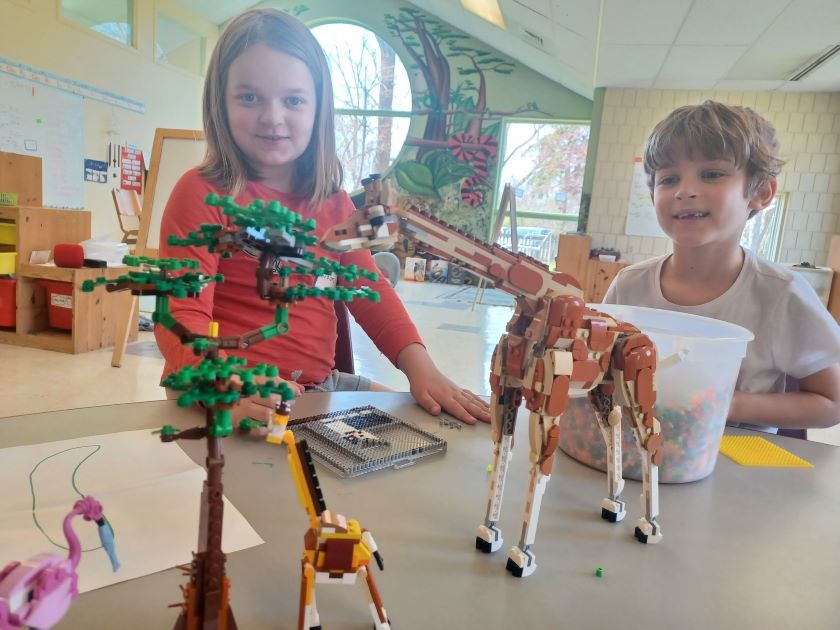
Clonlara: How is Clonlara meaningfully different from other schools?
Bonnie: We switched to homeschool after just two days in a mainstream school because Joan had completely shut down. She was in this loud, very crowded room where there was a lot of “sit down” and “be quiet” and she just shut down in that environment.
I don’t know if other kids felt that way too but hid it better, or if it was just Joan’s unique needs, but it was clear she couldn’t learn in this environment. I didn’t want to just start off a process of years of her shutting down in one way or another, at one level or another. It wasn’t the right foot to start off on.
When we found Clonlara, I could see Joan making connections with other kids. I could see her running and playing. When Amelia, her teacher at the time, talked to her, one hundred percent of Amelia’s attention was on Joan. Her body was turned towards her. She made eye contact and she gave Joan space to answer questions. And it was so different than the environment that had shut her down.
Clonlara: Can you describe the sense of community at Clonlara?
Bonnie: Oh my gosh, I don’t even know how to answer this question because the sense of community is so profound. I struggle to wrap my head around it. Maybe I can describe an event that exemplifies it.
During a student meeting, one of the kids raised the issue that it was too muddy under the swings. The parents have a volunteer crew that helps maintain the green spaces, and we decided we could mitigate the mud with wood chips. One of the parents figured out how we could get wood chips for free, and another parent organized a day when we could all get together and do the work.
That day turned out to be a bright, beautiful fall day, and the golden sunlight was coming through the trees. All of these parents showed up to help, and then other parents, teachers, staff, and students saw what we were doing and joined in too. The kids had little shovels and we got this enormous backbreaking chore done in a matter of minutes while laughing and brainstorming other ideas.
I think it was the fact that we knew and trusted each other that made other people feel welcome to get involved even though they hadn’t been part of the planning.
The community is beyond anything I’ve experienced since college, so it’s a major deal for us.
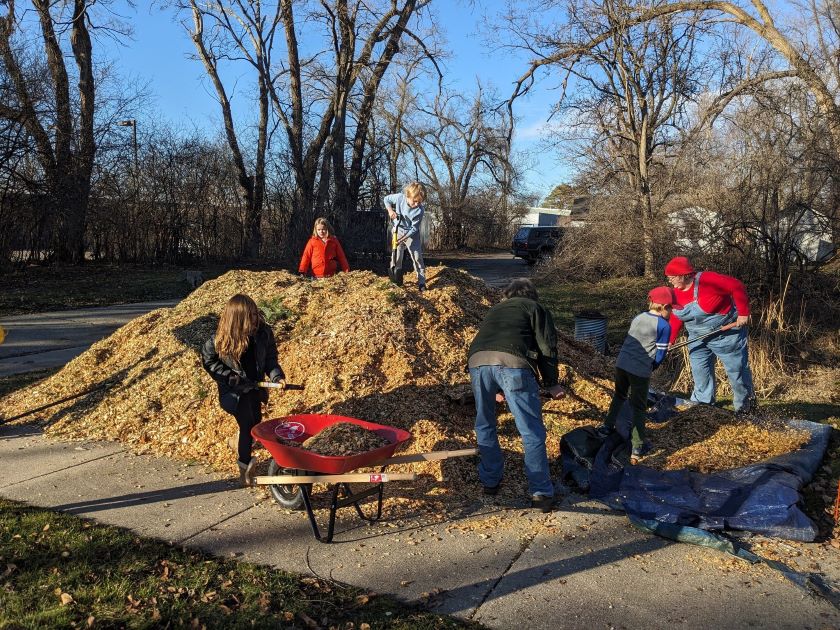
Clonlara: How has your child been supported in following their interests?
Bonnie: Joan loves dragons. Last year we were still coming out of the pandemic and regrowing community, and it could be kind of awkward at times. But campus teachers and staff supported Joan in planning a “Dragon Day.” She got to plan all of these events, design dragon games, and make a dragon-shaped cake. Kids could choose to come or not come, and they came.
Joan was able to bring something special to her into the school community, and everyone showed up for it and helped her make it happen. And I think that that gave her a sense of confidence and belonging. Of course, she’s not understanding it on that cerebral level, but she understands it in her gut.
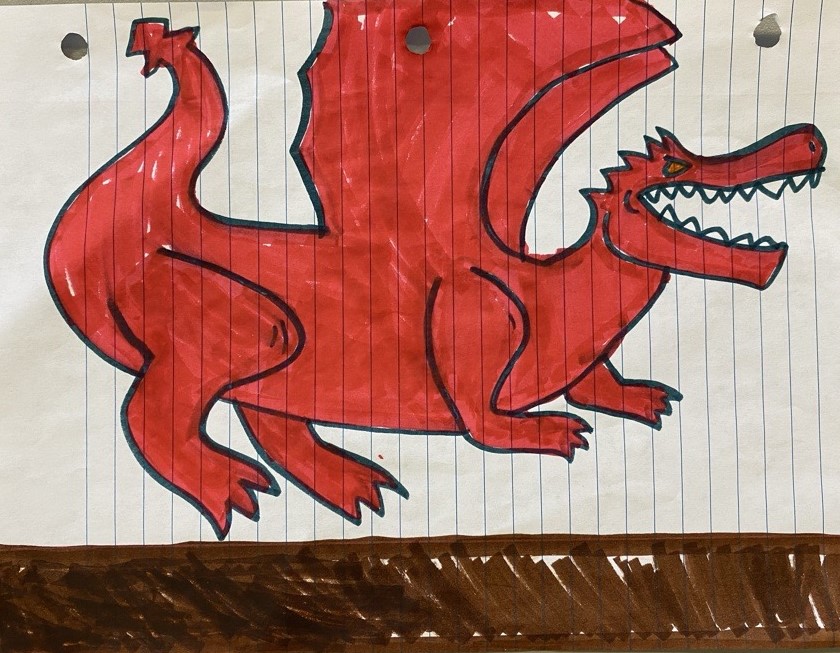
Clonlara: Is there anything else you’d like to say about Clonlara or your child’s experience?
Bonnie: I think it’s kind of this hidden gem in the area, and part of me wants to just protect it—like, “No, it’s my secret!”—but then the other part of me knows that this could be a model for other schools, and that it might help other parents to realize that a different way is possible. So I wish more people knew about it.
Thank you for sharing your family’s story with us, Bonnie! We know it will inspire others to learn more about Clonlara.
We love hearing about our students’ experiences. If you would like to share your family’s story, please let us know! And stay tuned for more interviews…




